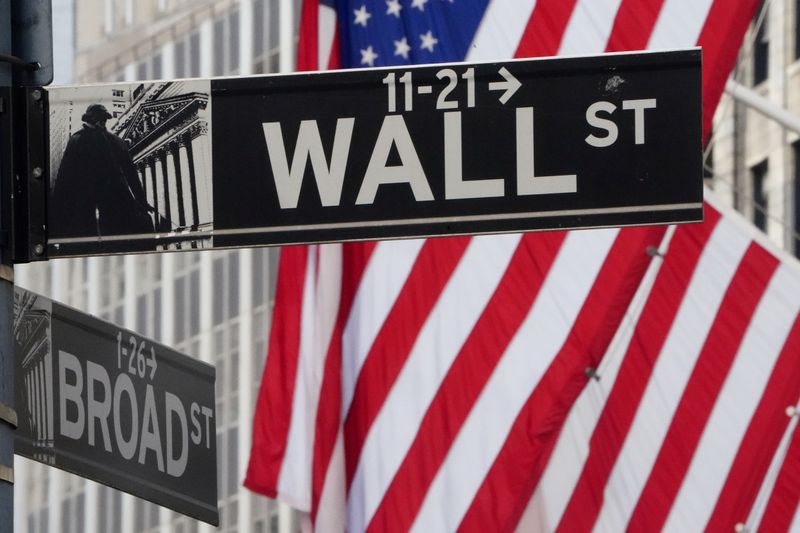LONDON/NEW YORK (Reuters) – Shrugging off reams of terrible economic data, plunging oil prices and dire corporate results, world stocks have recouped around half of this year’s coronavirus-linked losses as investors flip over their calendars to bet on a strong recovery in 2021.
Trillions of dollars in stimulus from governments and central banks, and moves to start re-opening businesses, are contributing to the bounce-back.
The most hopeful sign is the decline in volatility.
Wall Street’s fear gauge, the Cboe Volatility Index <.VIX> as well as the Euro STOXX 50 volatility index <.V2TX> have steadily dropped over the past month to the low 30s, their lowest level since early March. Both indexes spiked past 80 at the height of the market sell-off last month.
The VIX similarly receded below 40 as the last bull market began in March 2009, following the global financial crisis.
MSCI’s gauge of stocks across the globe <.MIWD00000PUS> is now just 16% off record highs hit on Feb. 19, having recovered more than half of its lost ground.
“What we see is that the market is anticipating a recovery,” said Roland Kaloyan, head of European equity strategy at SocGen. “It is already looking at 2021. If you look at sectors, the so- called market darlings in the technology, pharma, luxury goods, all have priced in a V-shape recovery.”
U.S. and European stock valuations, based on 12-month forward price-to-earnings ratios, are a touch away from pre-virus levels. Those multiples reflect some market participants’ belief that corporate earnings will fully rebound by next year, some strategists say.
For a graphic on P/E valuations of STOXX and SPX, click https://fingfx.thomsonreuters.com/gfx/buzz/oakvezqgzpr/Pasted%20image%201588083279883.png
Meanwhile, the tech-heavy Nasdaq 100 <.NDX>, the only major index that is not down this year, is just 10% off Feb. 19 levels.
Equities have also displayed remarkable resilience in the face of data, which in the course of just weeks saw the loss of all the U.S. jobs created in the past decade. From March 19 to April 16, the S&P 500 <.SPX> rose five Thursdays in a row, barely blinking at eye-popping U.S. jobless claims figures released on those days.
“The market always moves faster than the macro data,” said Valentijn van Nieuwenhuijzen, who oversees the management of 276 billion euros at Dutch asset manager NN Investment Partners. “A lot of this we knew already.”
Factories and shops in some European countries, including Italy, France, Germany and Spain, are now open – with some restrictions in place – as COVID-19 infection rates slow. Several U.S. states have resumed activity, while others are considering similar steps.
Stocks have risen alongside an increase in global vehicle traffic as countries ease restrictions, UBS strategist Keith Parker wrote in a note on Monday.
Yet even by 2021, business may not be fully back to normal, some say, especially if COVID-19 outbreaks recur in the fall.
“We believe markets are ahead of themselves price-wise,” said Robert Nobles, chief investment officer at Synovus Trust in Columbus, Georgia. “We still don’t believe there will be a full recovery this time next year.”
A calmer VIX in itself also doesn’t tell the full story. The index remains well above its usual levels, and VIX futures <0#VX:> point to expectations for elevated volatility throughout the year. Likewise, in foreign exchange markets, a Deutsche Bank index of currency volatility <.DBCVIX> is still some distance above the record lows it hit early this year.
Even so, the trillions of dollars in stimulus from central banks around the world have helped prop up equities. Pictet Asset Management’s senior macro strategist Steve Donze has calculated that a $1 trillion central bank liquidity injection correlates with a 20-point gain in the MSCI World index.
The injection of liquidity should have a positive multiplier effect on equities as soon as the fears of systemic shock fade, according to French bank Natixis.
Indeed, investors in search of returns have few alternatives to stocks, especially given the massive intervention of central banks in bond markets, said Philippe Waechter, chief economist at Ostrum Asset Management.
For a graphic on FX Vol, click https://fingfx.thomsonreuters.com/gfx/mkt/jbyvrjlolve/Vol.JPG
(Reporting by Thyagaraju Adinarayan, Julien Ponthus, Joice Alves, Saikat Chatterjee and Tommy Wilkes in London and April Joyner in New York; Editing by Gareth Jones and Nick Zieminski)



















